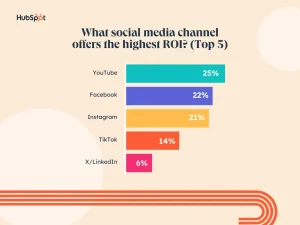
Introduction
Biotechnology has witnessed remarkable advancements in recent years, propelling scientific research to new heights and revolutionizing the fields of gene editing and personalized medicine. These groundbreaking developments have the potential to reshape the way we understand and treat diseases, offering hope for more targeted and effective therapies. In this article, we will explore some of the most significant breakthroughs in gene editing and personalized medicine, highlighting their impact on healthcare and the promise they hold for the future.
Gene Editing: CRISPR-Cas9 and Beyond
The emergence of CRISPR-Cas9 technology has been a game-changer in the world of gene editing. CRISPR-Cas9 allows scientists to precisely edit the DNA of living organisms with unprecedented accuracy and efficiency. The system consists of a guide RNA that targets specific sequences in the DNA, and the Cas9 protein, which acts as a molecular pair of “scissors,” cutting the DNA at the targeted site. This revolutionary technique has opened up endless possibilities for addressing genetic disorders, altering disease-causing mutations, and even creating genetically modified organisms.
While CRISPR-Cas9 has garnered much attention, ongoing research has led to the development of other gene editing tools, each with its unique advantages and applications. CRISPR-Cas12 and CRISPR-Cas13, for instance, offer expanded capabilities and improved precision, enabling the editing of previously inaccessible regions of the genome. These advancements not only enhance the potential for therapeutic interventions but also provide researchers with powerful tools to study the genetic basis of diseases.
Personalized Medicine: Tailoring Treatments to Individuals
The concept of personalized medicine revolves around customizing healthcare approaches based on an individual’s unique genetic makeup, lifestyle, and environmental factors. Through advancements in biotechnology, we can now delve deeper into a person’s genetic profile and gain insights into their susceptibility to diseases, their response to treatments, and their overall health risks.
One of the primary drivers of personalized medicine is genomic sequencing. The plummeting costs of genome sequencing technologies have made it more accessible, enabling large-scale studies and routine genetic testing. Armed with this genetic information, healthcare professionals can identify specific biomarkers associated with diseases, helping diagnose conditions earlier and design targeted treatment plans.
Additionally, pharmacogenomics, a field that studies how genes influence an individual’s response to drugs, plays a pivotal role in personalized medicine. By analyzing a patient’s genetic variations, clinicians can predict drug efficacy and potential side effects, allowing them to prescribe medications that are most suitable for that particular individual.
Applications in Cancer Treatment
The marriage of gene editing and personalized medicine is particularly promising in the field of oncology. Cancer, being a disease driven by genetic mutations, can greatly benefit from these breakthroughs. With targeted gene editing tools, scientists can modify cancer cells to render them more susceptible to treatments or halt their growth altogether.
Personalized medicine, on the other hand, helps identify the specific genetic alterations driving a patient’s cancer, leading to more accurate diagnosis and tailored therapies. Precision oncology, a subfield of personalized medicine, is at the forefront of this approach, aiming to optimize cancer treatment by matching individual patients with the most effective drugs or combination of therapies based on their genetic profile.
Ethical Considerations and Future Challenges
While the advancements in gene editing and personalized medicine hold immense promise, they also raise ethical concerns. The ability to edit human embryos or alter the germline raises questions about the potential long-term consequences and the line between therapy and enhancement.
Furthermore, the integration of vast amounts of genetic data into medical decision-making requires careful handling to ensure patient privacy and prevent misuse of sensitive information.
As biotechnology continues to evolve, striking a balance between scientific progress and ethical considerations will be crucial in harnessing its full potential for the benefit of society.
Conclusion
Biotechnology has paved the way for groundbreaking breakthroughs in gene editing and personalized medicine, offering new avenues to combat diseases and improve healthcare outcomes. The development of CRISPR-Cas9 and other gene editing tools has empowered scientists to explore the possibilities of genetic modification for therapeutic purposes. Concurrently, personalized medicine has enabled tailored treatments based on an individual’s unique genetic characteristics, revolutionizing cancer treatment and beyond.
As these fields progress, it is vital to navigate the ethical landscape thoughtfully and responsibly, ensuring that these biotechnological advancements remain focused on improving human health and well-being. With continued research, collaboration, and responsible implementation, the future of biotechnology in gene editing and personalized medicine looks brighter than ever, holding the potential to transform healthcare as we know it.







